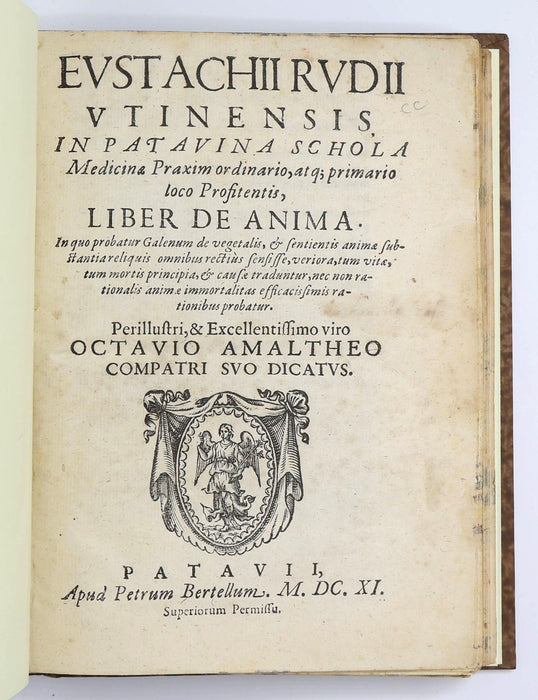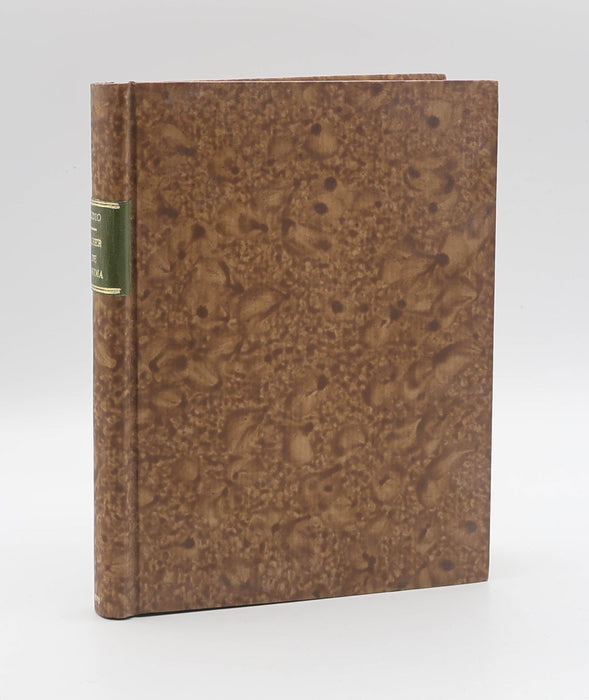
FREEING THE MIND
Rudio, Eustachio: [...] Liber de anima. In quo probatur Galenum de vegetalis, & sentientis animae substantia reliquis omnibus rectiùs, sensisse, veriora, tum vitae, tum mortis principia, & causae traduntur, nec non rationalis animae immortalitas efficacissimis rationibus probatur. Perillustri, & excellentissimo viro Octauio Amaltheo compatri suo dicatus. Patavii, apud Petrum Bertellum [ex typographia Laurentii Pasquati] 1611.
First edition of this important work of Galenic natural philosophy, part of “a crucial stage in the evolution that led from Aristotelian ontology to a naturalistic consideration of the human being [...] [F]rom this very crisis the fundamental attitudes of modern philosophy emerge: the demise of the inquiry into essences and the replacement of Aristotelian ontology with the analysis of the human mind and its operations” (Bigotti). Rudio (1548-1611), who was a professor at Padua, sets out, as the title-page indicates, to demonstrate that Galen’s views on life and the body are the best available. He concentrates on the part of the soul which concerns material and vital functions, and leaves the rational soul to the theologians. He sees the working of the senses as a purely physiological process. His naturalising of sensation is taken to the point of encompassing “phenomena such as imagination and thought, which are usually attributed to the conscious activity of the subject” (id.)
On a different point, it is likely that, at Padua, Rudio taught cardiology to William Harvey, the discoverer of the circulation of blood.
Details
First edition. One volume, 19.6 cms. x 15.2 cms., in quarto, pp. [4] 240 [2] 241-2 (colophon leaf has been bound before last leaf of text). Woodcut printer’s vignette to title-page, woodcut decoration to p. 242. Light browning and foxing, slight staining, bound in recent marbled paper over boards, earlier marbled edges.
Krivatsy 10011. SBN: IT\ICCU\BVEE\030645. USTC 4021849. OCLC shows copies outside mainland Europe at University of California San Francisco, National Library of Medicine, Chicago and Cambridge.
Fabrizio Bigotti, ‘Galen’s legacy and the transformation of natural philosophy in the late Renaissance: from ‘mens’ to ‘ingenium’’, in Romana Bassi, ed., Rinascimento veneto e Rinascimento europeo (Pisa 2019), 91-103, see esp. 99-101, 103. Massimo Rinaldi, ‘RUDIO, Eustachio’, Dizionario biografico degli italiani 89 (2017).

